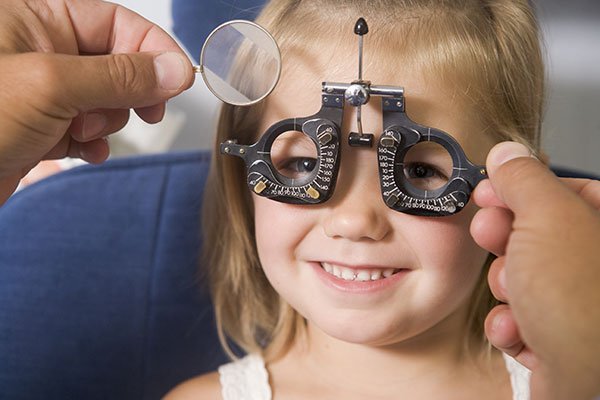Teen's Eye Care

Myopia (short sightedness) is one of the most common eye conditions amongst young children. Current lifestyle involving a lot of near work and genetics are two contributory factors in increase of Myopia worldwide. It is estimated that by the year 2050, 50% of the world's population will be myopic.
Many children will start needing prescription eyewear in their teens, as this is a prime time for the development of near-sightedness, or myopia. It's important to encourage teenagers to get into the habit of regular eye examinations. Uncorrected vision problems can affect all aspects of their lives: their studies at school or university; their job; even their social life or ability to play sport. Teenage is also the time when due to changes in the body and the eyes, likelihood of change in the refractive status of the eyes especially myopia are higher.
And, if they need help with their vision, there are all sorts of solutions - from regular glasses to prescription sunglasses, contact lenses and even prescription sunglasses.
Teenagers are hooked onto the electronic gadgets like tablets, mobile phones, televisions etc. for many hours a day which emit high amount of blue-violet rays. Excess exposure to high energy blue-violet light emitted from these gadgets can have short term implications like Eye fatigue, strain, altered sleep pattern, lack of alertness and long term impact on the retina by means of degeneration. Hence they need to get regular eye test done and have protective eyeglasses which reduce exposure to Blue-violet light.
Adult's Eye Care
To maintain a lifetime of healthy vision, the professional bodies like American Optometrist Association recommends a comprehensive eye exam at least every two years for adults ages 18 to 60, and annual exams for seniors age 61 and older.
"At risk" adults should have more frequent exams. Risk factors for adults include:
• A family history of eye disease (glaucoma, macular degeneration, etc.)
• Diabetes or high blood pressure
• A visually demanding occupation or one that may pose hazards to the eyes
• Taking prescription or non-prescription drugs that may have visual or eye-related side effects
• Previous eye injuries or eye surgery

Also, adults who wear contact lenses should have annual eye exams.
If you have any doubts about how often you (or your children or parents) should have your eyes examined, ask your Optometrist for guidance.
What should I bring with me to my Eye test?
-It is important to bring information to your eye test that will alert your eye doctor to risks you may have for eye or vision problems.
-In particular, bring a list of any prescription or non-prescription medications you are currently taking or that you took on a regular basis in the past.
-If you currently wear corrective lenses, bring all pairs of eyeglasses you wear routinely. If you wear contacts that were prescribed elsewhere, bring a copy of your most recent contact lens prescription.
Finally, prepare and bring a list of questions or concerns that you would like to discuss with the Eye Specialist. And if you are interested in specialty services such as contact lens fitting, be sure to mention this.